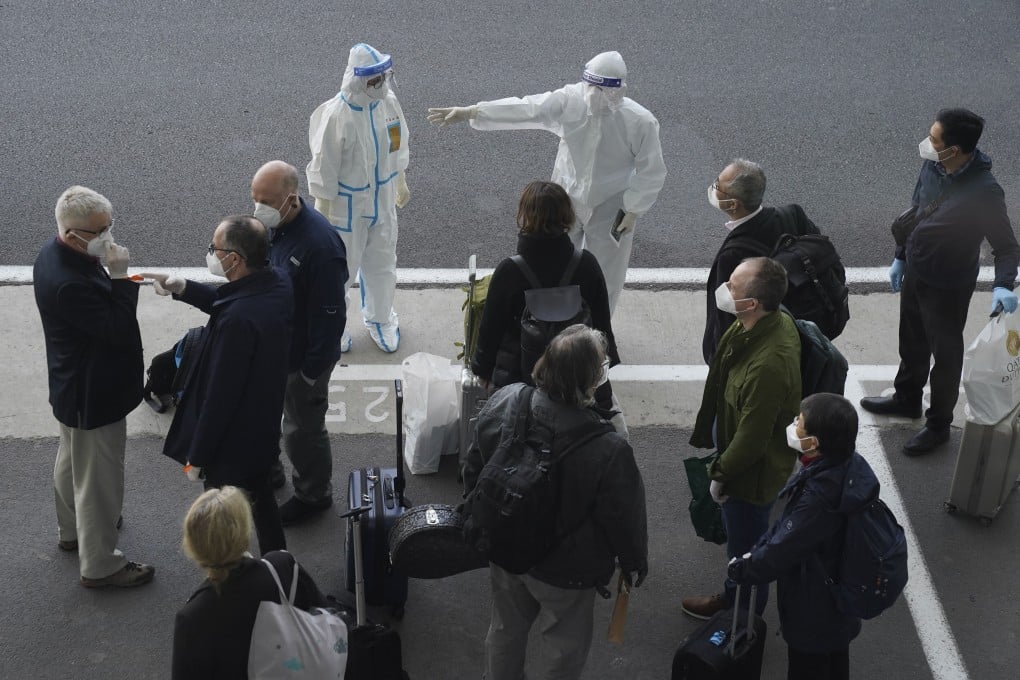Coronavirus: two scientists on WHO team barred from China after testing positive for antibodies
- Researchers still in Singapore awaiting further confirmation as rest of group arrives in Wuhan
- Passengers flying from Singapore are required to take nucleic acid and IgM antibody tests before boarding China-bound flights

The two scientists were negative for the standard nucleic acid test used to diagnose active infection, but tested positive for IgM antibodies, which may point to recent infection.
China requires passengers flying from Singapore to take a nucleic acid test and an IgM antibody test up to two days before boarding China-bound flights. WHO guidance, however, says antibody tests should not be used to diagnose acute Covid-19 infection, as antibodies develop a few weeks after infection.
The WHO said the two scientists were still in Singapore to be retested for IgM antibodies and another type, IgG antibodies. Those are thought to be longer lasting than IgM and suggest a person was previously infected.
Asked about the two team members at a regular press briefing, Chinese foreign ministry spokesman Zhao Lijian said “relevant epidemic prevention and control requirements and regulations will be strictly enforced”, according to a Reuters report.

01:47
WHO health experts arrive in Covid-19 epicentre Wuhan to investigate origins of coronavirus